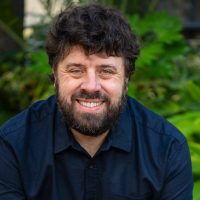Articles / Clinical Conversations: Acute Stroke Treatments and Secondary Stroke Prevention | Part One


writer
Neurologist; Head, Neurology and Stroke, Royal Melbourne Hospital; Professor of Neurology, Department of Medicine, Royal Melbourne Hospital
This is part one of this series. Read Part 2 >>
Practice points
• The first message we promote are the most common signs of stroke. So F is for face droop, A is for arm, if the arm is weak, S is for speech, if it is slurred or incomprehensible, T is for time to call triple zero.
• Do not try to give a stroke patient anything orally, do not to give them aspirin as it could be a haemorrhage, do not treat hypertension.
• If you get a focal deficit that is sudden onset (the average duration is about ten minutes,), the patient needs exactly the same workup as a stroke.
• Look at the carotid arteries, look for atrial fibrillation, start anti-platelet therapy really quickly. Brain imaging is very worthwhile, such as a CT scan to exclude a bleed; an MRI should be normal in a TIA.
• Endovascular thrombectomy, physically removing the clot via an angiogram, is of major benefit for patients with a large artery occlusion, such as the middle cerebral carotid territory or the vertebral artery, within six hours of onset.
• The proportion of stroke patients who benefit from active management does drop off rapidly with time.
Based on this educational activity, complete these learning modules to gain additional CPD.

Managing Paediatric Anxiety in General Practice

OSA – Which Test for Which Patient

Musculoskeletal Health in Menopause

AHPRA-Proof Your Practice – Social Media Risks for GPs

writer
Neurologist; Head, Neurology and Stroke, Royal Melbourne Hospital; Professor of Neurology, Department of Medicine, Royal Melbourne Hospital



Strongly agree
Somewhat agree
Neutral
Somewhat disagree
strongly disagree
Listen to expert interviews.
Click to open in a new tab
Browse the latest articles from Healthed.
Once you confirm you’ve read this article you can complete a Patient Case Review to earn 0.5 hours CPD in the Reviewing Performance (RP) category.
Select ‘Confirm & learn‘ when you have read this article in its entirety and you will be taken to begin your Patient Case Review.
Menopause and MHT
Multiple sclerosis vs antibody disease
Using SGLT2 to reduce cardiovascular death in T2D
Peripheral arterial disease
